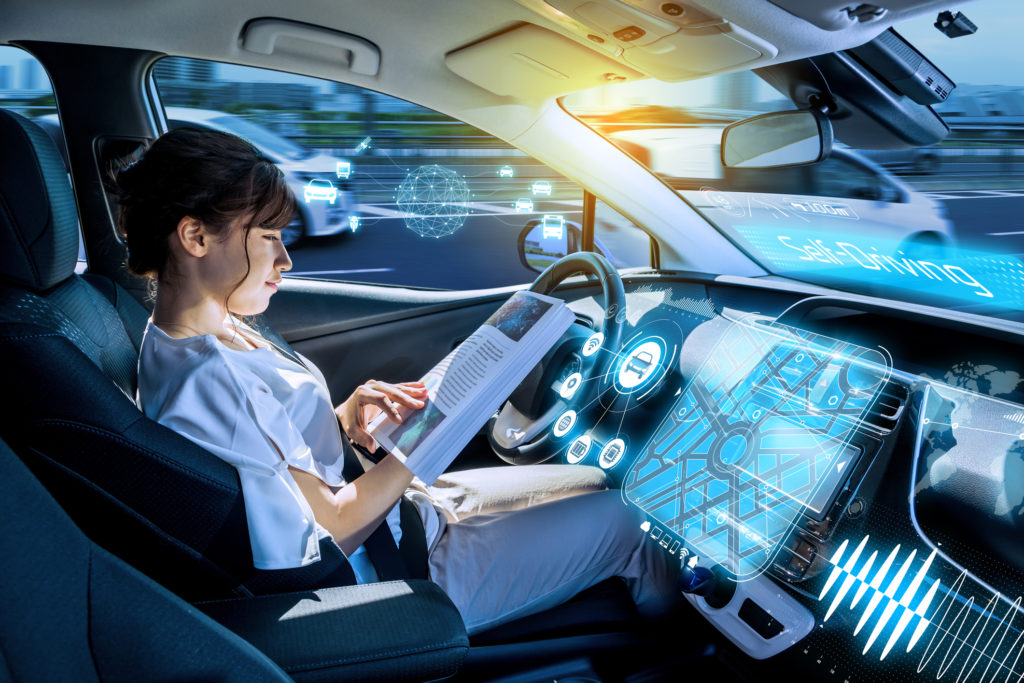 Autonomous vehicle (AV) technology is set to become the biggest disruptor the automotive industry has seen in the past century. While some say the age of the AV is just around the corner, the consensus seems to be that Level 5 automation (that is, true driverless cars with no steering wheel or gas and brake pedals) is a long way off.
Autonomous vehicle (AV) technology is set to become the biggest disruptor the automotive industry has seen in the past century. While some say the age of the AV is just around the corner, the consensus seems to be that Level 5 automation (that is, true driverless cars with no steering wheel or gas and brake pedals) is a long way off.
Companies like Alphabet (Waymo), General Motors, Uber and Baidu are currently investing billions of dollars on developing AV technology as they rush to stake a claim on the market. As of February 2018, in the United States, 21 states have passed AV legislation, and 19 of these enable testing of AVs on public roads. Nearly 60 cities globally are hosting pilot programs for AV testing. Unfortunately, news of accidents and fatalities involving AVs abound and consumer trust in AV technology isn’t there yet.
AVs in the Short-Term
Mass-market AVs are a long-term hope with the promise of decreased costs and increased safety, but in the meantime, the technology is more likely to be used for deliveries, transferring goods, and shuttle services or ride sharing.
Deliveries/Transferring Goods: Rio Tinto currently has a fleet of autonomous haul trucks at its Pilbara iron ore mines in Western Australia. According to Rio Tinto, each autonomous truck operated, on average, an additional 1,000 hours at 15 percent lower load and haul-unit cost than conventional haul trucks in 2016. The company plans to expand its fleet by more than 50 percent by 2019.
Shuttles/Ride Sharing: GM has announced plans for shared autonomous vehicles (SAVs) available as early as 2019. SAVs will be much cheaper than driven cars, allowing people to pay only for each ride rather than for the vehicle itself, and provide increased mobility to the 25% of our population who have limited mobility now, such as children, the elderly, and people with physical disabilities.
Long-Term Outlook
John Walker, transportation marketing manager at the ride sharing company Lyft, estimates Level 4 or Level 5 autonomy will be a reality in 10 years. Lyft has established a Level 5 lab to design autonomous vehicles specifically for ride sharing and has partnerships with Waymo, nuTonomy, Drive Ai, and Jaguar Land Rover. There’s already a 2% chance that Lyft riders in Las Vegas who opt-in will be picked up by an AV.
Henrik Green, Volvo senior vice president, says ten years is too far out. He recently revealed that the next generation Volvo XC90, which should hit the market around 2021, will be able to transport sleeping passengers to their destination on limited roadways (likely highways and freeways). The company’s Level 4 (high automation) AV technology suite is called Highway Assist, and is essentially an extension of the Pilot Assist features offered on current Volvo models. The Highway Assist package will be an optional extra costing four figures.
Helping the progress of AV technology along, solid-state LiDAR company, Quanergy, recently showcased revolutionary technology at Connected & Autonomous Vehicles 2018 that is both inconspicuous and inexpensive. Although the company’s goal is to reduce LiDAR sensor technology to the size of a chip, the current prototype is roughly double the size of a deck of playing cards, which could be easily concealed under sheet metal and has a unit cost of around $200. This much smaller, cheaper and less conspicuous sensor isn’t as fragile as the mechanical LiDAR sensors on many test AVs today. This technology could revolutionize the current AV industry with the ability to be integrated into today’s vehicles for a fraction of the cost of the existing clunky add-ons.
Prepare for the Future Today
Coming soon from IEEE, Fundamentals of Autonomous Vehicle Technology is a six-course program developed by some of the leading experts in the field. The program covers foundational and practical applications of autonomous, connected and intelligent vehicle technologies. For more information or to pre-order this course program, connect with an IEEE Content Specialist today!
Resources
Narigon, Amelia. (22 Feb 2018). Autonomous Vehicles: Coming Sooner Than You Think. University of Minnesota College of Design.
Gerdes, Justin. (6 Feb 2018). Not So Fast. Fully Autonomous Vehicles Are More Than a Decade Away, Experts Say. Greentech Media.
Bergen, Mark. (19 Mar 2018). Uber Halts Autonomous Car Tests After Fatal Crash in Arizona. Bloomberg.
Totaro, Eric. (2 Jun 2018). Top Five Takeaways from Connected & Autonomous Vehicles 2018. Euromonitor International.
Wong, James. (22 June 2018). Volvo XC90 to Get Level 4 Driverless Tech in 2021 – Report. Car Advice.



Great article! Our vehicle gives us a lot of comfort on the road every day. However, even the latest car with the most innovative technology needs proper care for it to run smoothly and reliably on the road. Trusting a car service expert for the repair and maintenance of your car is great as they provide the most reliable service. The only struggle that a car owner will encounter is finding the right car shop to trust.
Its true that even with all the promises that autonomous vehicles have promised, there is still a lot of skepticism about how safe they are, and rightly so. It seems that Level 2 automation is still the most that any company can achieve, as I recently read in a blog by Grand View Research titled ‘Self-Driving Cars and Trucks Market: ‘Knight Rider’ Comes To Life’, regarding the various mishaps that have occurred when these vehicles are left completely autonomous. In my opinion, this would still require many years of research.